Africans view COVID-19 vaccines as less safe than other vaccines
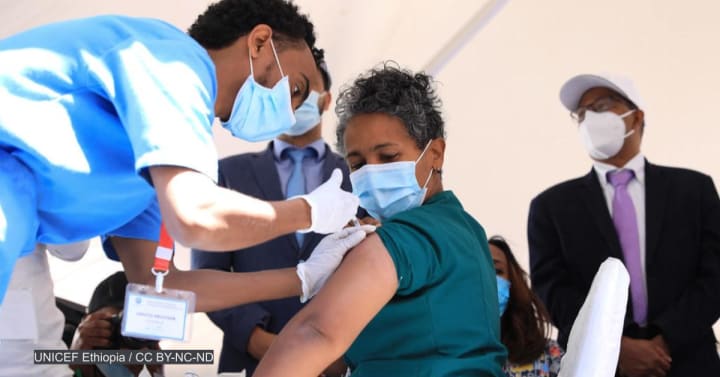
A survey report released this month on perceptions of inoculation in 15 African nations found that in almost all of them, respondents tended to view new COVID-19 vaccines as less safe than other vaccines.
Only Ethiopia — with the highest proportion of people willing to take a COVID-19 vaccine, at 94% — was an exception. There, 14% of people deemed vaccines unsafe in general, while just 12% thought COVID-19 vaccines are unsafe. At the low end of the spectrum, just 59% of respondents in the Democratic Republic of Congo were willing to be vaccinated against the coronavirus, according to the survey data.
Sign up for Devex CheckUp
The must-read newsletter for exclusive global health news and insider insights.
Conducted by Opinion Research Business International in collaboration with the Vaccine Confidence Project at the London School of Hygiene & Tropical Medicine on behalf of the Africa Centres for Disease Control and Prevention, the study asked 15,000 people in 15 countries about their opinions on COVID-19 vaccines between August and December.
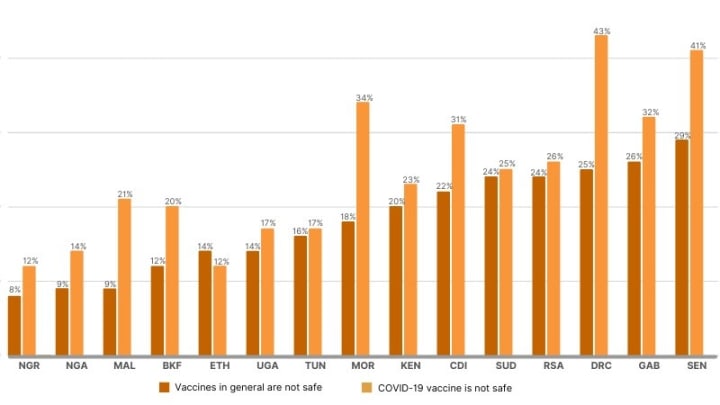
Men, older respondents, and people living in rural areas were more willing to take a COVID-19 vaccine. Health experts have said that there is a need for continuous surveillance as countries begin to roll out vaccines.
Still, it found that 79% of respondents would accept a vaccine deemed safe and effective. By comparison, studies conducted in the United States in December found that under half of adults planned to get vaccinated for COVID-19, an increase from 39.4% three months earlier.
In fact, 87% of Ethiopians said they were now more likely to vaccinate themselves in general because of the COVID-19 pandemic, with close to half of respondents across all surveyed countries saying the same.
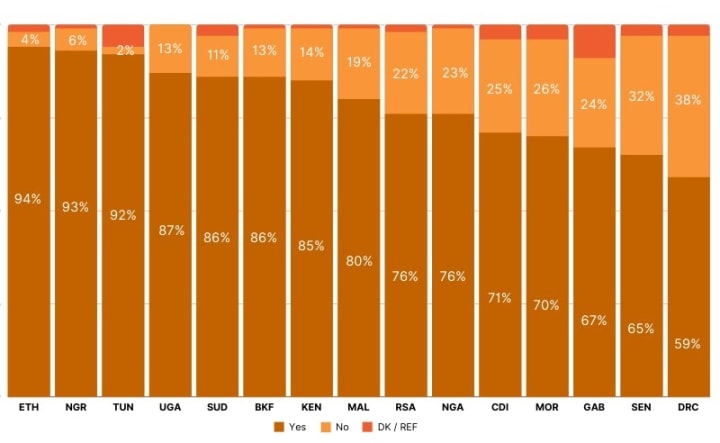
Skepticism toward a COVID-19 vaccine was high among certain demographics. Young people, the unemployed, and those living in cities were more skeptical toward COVID-19 vaccines. Women showed higher levels of vaccine confidence in general but reported more skepticism around a COVID-19 vaccine.
“[EU countries’ vaccinations pause] will clearly not be helpful … in building public confidence and trust on the use of that particular vaccine and other vaccines.”
— John Nkengasong, director, Africa Centres for Disease Control and Prevention
More than 50% of survey respondents said they felt the threat of the virus was exaggerated — a trend more pronounced in countries such as Niger, Sudan, and Nigeria, where people report less compliance with protective measures such as hand-washing. Conspiracy theories — saying that COVID-19 is human-made or that it does not exist at all, for example — vary widely by country. Just 6% of survey respondents said they don’t think the disease exists, but that number rises to 18% in Nigeria.
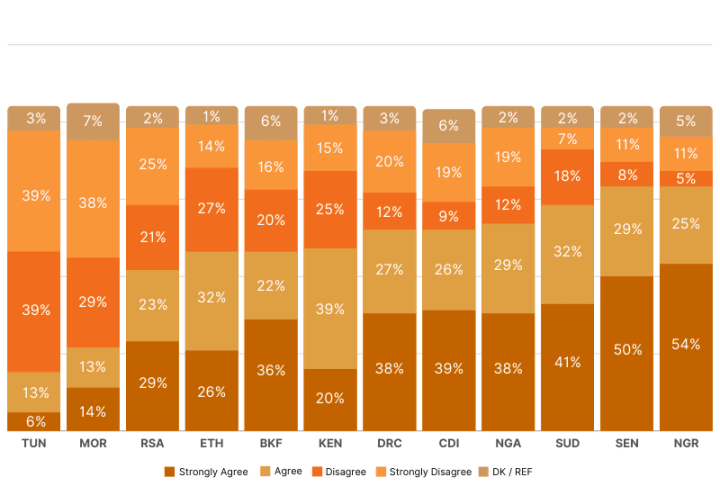
From the total number of people surveyed, 49% believed that COVID-19 is a planned event by a foreign actor, and 45% believed that people in Africa were being used as “guinea pigs” in vaccine trials.
Over half of the people surveyed considered themselves to be either not very well or not at all informed about vaccine development.
Get development’s most important headlines in your inbox every day.
Thanks for subscribing!
“With respect to building confidence, that is work that has to be continuous, and it is all of our work,” said John Nkengasong, director at Africa CDC.
More on COVID-19 vaccine rollouts:
► Billions of COVID-19 vaccines, one problem: Who will deliver them?
Since the survey was conducted, African countries have begun vaccination campaigns, mainly using doses of the vaccine developed by AstraZeneca that were received through the global COVAX initiative. Nkengasong said more surveys would be necessary as rollouts continue across the continent.
This month, several European countries halted the use of the AstraZeneca vaccine following reports of blood clots. In Africa, the Democratic Republic of Congo followed suit, postponing its rollout after receiving 1.7 million doses through the COVAX Facility.
Last month, South Africa announced a temporary pause on the AstraZeneca vaccine rollout after research found that it offered minimal protection against mild and moderate cases of the COVID-19 variant first discovered in the country, which accounts for more than 90% of cases there.
Italy, France, Germany, Spain, Cyprus, and the Netherlands have since announced plans to continue using the vaccine after the European Medical Authority deemed it safe and effective.
This week, U.S. health officials warned that AstraZeneca might have included outdated information in trial results for its vaccine, casting doubt over published efficacy rates.
Though it seems that many people are expressing doubts about the AstraZeneca vaccine, the hope is that this will not add to concerns about COVID-19 vaccines more broadly, Dr. Matshidiso Moeti said, regional director for Africa at the World Health Organization.
Nkengasong said that the pause by European countries “will clearly not be helpful … in building public confidence and trust on the use of that particular vaccine and other vaccines.”
He added that although these developments are unfortunate, they are also not unusual.
“We saw this in the HIV pandemic. We saw this in the Ebola situation. When vaccines were first introduced for Ebola, it wasn’t obvious that the communities were going to receive them,” Nkengasong said. He predicted that the initial hesitancy to receive the vaccines will be followed by higher confidence as more people are immunized.
“As we know, today the world has suffered … about 2.6 million deaths because of COVID,” he said — a figure that has since grown to over 2.7 million. “And no one has died because of receiving a vaccine.”
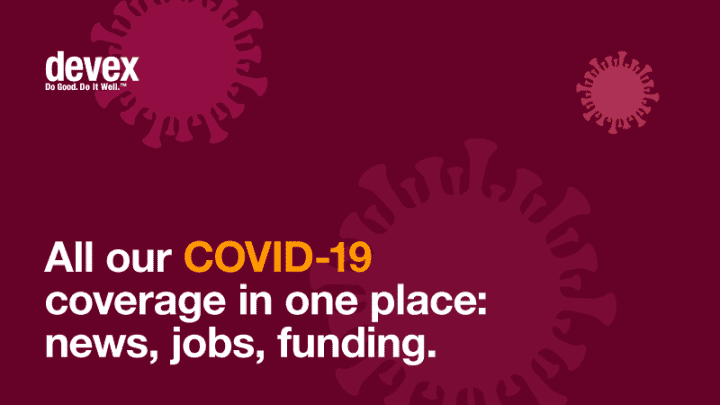
Printing articles to share with others is a breach of our terms and conditions and copyright policy. Please use the sharing options on the left side of the article. Devex Pro subscribers may share up to 10 articles per month using the Pro share tool ( ).


